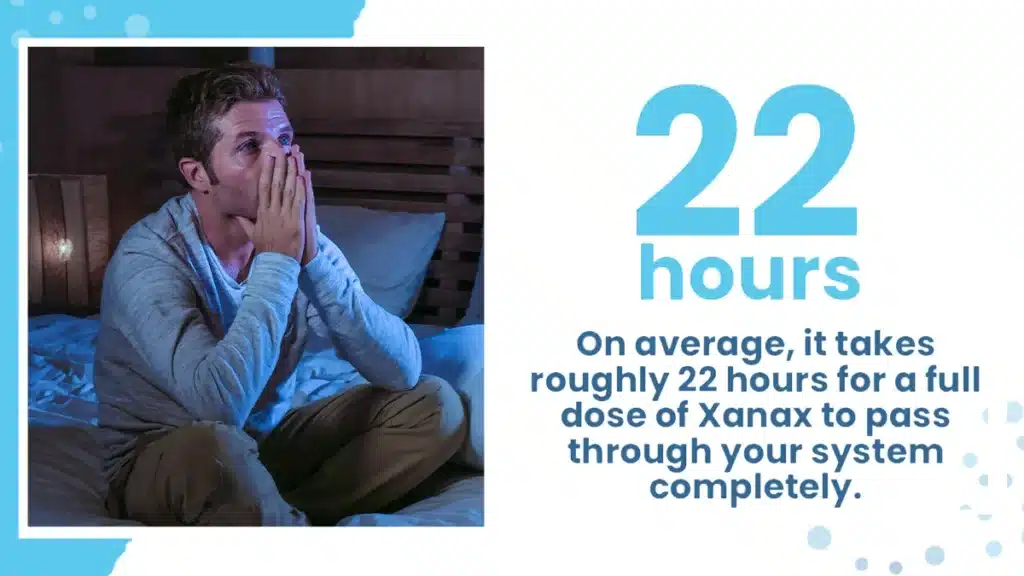Drugs with the Worst Withdrawal Symptoms
One of the most worrisome prospects that comes with trying to quit any drug is the possibility of going through withdrawal. It’s important to be aware of what withdrawal symptoms accompany particular drugs, especially in instances where going off a specific drug may be fatal. While there’s a general feeling that quitting drugs “cold turkey” is preferable, it may be wiser in many instances to work with someone who knows how to treat withdrawal in order to put together a plan for a medical detox. If you have any doubts, it may be prudent to visit a safe haven and learn more about the process. Let’s take a look at some of the drugs with the worst withdrawal symptoms.
Opiates, Including Heroin and Prescription Drugs
Opiates, including those prescribed for pain, can be especially tricky to deal with. An individual who has become addicted to a product intended to treat pain may still be in a situation where pain management needs to be considered. For example, someone trying to cope with the effects of a massive spinal injury is likely to still require treatment after they’re off a specific drug. The continuing presence of pain can significantly increase the risk of a relapse, and that’s why it’s a good idea to consider working with a medical detox professional to figure out a path toward recovery.
One important factor to keep in mind is that the risks associated with a possible overdose of an opiate far outweigh those posed by withdrawal symptoms. While opiate withdrawal can be especially unpleasant to go through, the majority of deaths associated with opiate withdrawal symptoms arise from patients who overdosed after they began to use prescribed medicines, such as methadone.
Opiates are a class of drugs. While historically thought of in terms of the street drugs heroin and opium, they also include a number of pain management medicines, including codeine, hydrocodone, morphine and oxycodone. As of 2014, almost 10 times as many Americans were illegally using prescription opiates as were using heroin.
The earliest withdrawal symptoms for opiates include agitation, anxiety, muscle aches and insomnia. Many people also experience runny noses and sweating. As the sequence progresses, some individuals will also go through abdominal cramping, diarrhea, vomiting and nausea. Dehydration issues are common, too. Symptoms typically appear within 12 to 30 hours, and they’re highly variable depending on the particular drug the individual has been using.
Seeking the guidance of a professional who knows how to treat withdrawal is advised. Opiates often carry with them a sense of pleasure, and this sensation combines with pain-relieving effects to create a strong incentive to get back on the drugs. Many of the most commonly prescribed medications for opiate withdrawal symptoms, such as methadone, may present their own set of problems. For these reasons, it is wise to work with a professional to try to steer clear of some of the worst withdrawal complications.

Cocaine
In terms of speed of onset, cocaine is one of the fastest drugs to lead to withdrawal symptoms. Many users feel the onset of symptoms within 90 minutes of their last fix. While the worst of the symptoms is only felt within the first two days, issues can linger for as long as 10 days.
Many of the symptoms of cocaine withdrawal arise from losing the feelings that come with a drug that is a stimulant. For example, cocaine increases the perception of one’s own mental sharpness. It also frequently suppresses appetite. Those who go off it may feel like they’re thinking more slowly. They also frequently experience hunger. Other cocaine withdrawal symptoms include exhaustion, physical pain and insomnia. Some cocaine users who quit go through a period where they lose interest in sex.
Deaths tied directly to cocaine withdrawal are rare. However, a number of serious health issues can accompany going off the drug. Individuals often experience depression and paranoia, and in extreme cases, this can lead to suicide attempts or acts of violence. Cardiovascular episodes have been reported, including heart attacks.
One factor that makes treating cocaine dependency complicated is that no single drug or class of drugs has been shown to be effective in all people. What works well for one patient may not help another. This means that seeking the advice of someone familiar with medical detox methods is necessary because the process sometimes calls for a period of trying different approaches to see what works for a particular individual.
Alcohol
It may seem surprising to hear that a drug that is legally available to the vast majority of adults is also one with some of the worst withdrawal issues. In the worst cases involving those who have alcohol use disorders, patients died from respiratory and cardiovascular collapses. Deaths from cardiac arrhythmias have also been reported. Delirium tremens, more commonly called DTs, can develop within 72 hours since a person’s last drink. DTs are often accompanied by confusion, seizures, convulsions and delusions. Individuals suffering through DTs may also experience hyperpyrexia and ketoacidosis. These types of complications occur in less than 5 percent of cases, but they can be lethal or cause long-lasting damage.
Lesser withdrawal symptoms from alcohol include anxiety, sweating, nausea and retching. They tend to peak around 10 to 30 hours after the last drink, and they typically subside after 40 to 50 hours. Some individuals may experience auditory or visual hallucinations, and these can last up to six days.
Because of the relatively quick onset of withdrawal symptoms, some patients have to be admitted to an emergency room for unplanned detoxification. Given the relatively frightening nature of what can happen, it may be worth your time to consider talking to a practitioner who knows how to treat withdrawal rather than quitting cold turkey. With guidance at a safe haven, you can approach the problem in a structured manner and know that someone qualified will be nearby to address any concerns that might pop up.
Benzodiazepines
Covering a class of drugs that are used to treat a variety of conditions, including other forms of drug addiction, benzodiazepines have come into increased use in recent decades. With that uptick in usage has also come a rise in withdrawal cases. More commonly called benzos, they can be used as muscle relaxants and general anesthesia. The increasing prescription of benzodiazepines like Xanax for anxiety and depression has led to problems, including cases involving minors.
Because benzodiazepines are often used to treat individuals undergoing acute withdrawal symptoms arising from the use of alcohol or opiates, there is some degree of selection bias in play. Individuals who display a tendency toward addiction in one instance often display it others. It’s not unusual for a person to get off fentanyl only to become addicted to benzos. Given the relative complexity of these issues, it’s easy to see why working with a medical detox center to set out a treatment plan is a good idea.
Withdrawal symptoms associated with the use of benzodiazepines can be extreme, especially for individuals who had previously been prescribed high doses. Withdrawal tends to last a bit longer than with other drugs, lasting about 10 to 14 days. Individuals can experience a range of problems, including seizures and psychotic episodes. Heart palpitations are not uncommon, and withdrawal from benzodiazepines is considered potentially fatal without professional monitoring. Grand mal seizures reported in such cases are typically worse than those associated with alcohol withdrawal.
Those getting off benzodiazepines often report a bump in the symptoms of the issues that originally led to them being prescribed. It’s not unusual for individuals to see a marked rise in anxiety and insomnia in the first two days without the drug. Some extreme cases have included reports of self-injury and suicide attempts, although it can be difficult to differentiate whether some of these arose from withdrawal or from underlying conditions.
Working with a medical detox center may be particularly beneficial when trying to cope with these sorts of mixed issues. If, for example, a patient is trying to recover from alcohol addiction, it may be necessary to explore a different course of action than prescribing benzodiazepines. Any recovery program should include a strong focus on monitoring for issues that are from pre-existing problems, such as depression and anxiety.
Amphetamines
Among the most commonly prescribed classes of stimulants are amphetamines. The rise in prescriptions for Adderall for patients who are experiencing attention deficits has driven a lot of this rise. The most common street version of the drug, methamphetamine, is also frequently used by individuals to stay awake on the job. This had led to amphetamine use by a wide range of the population from truck drivers to college graduate students. These types of stimulants are also commonly used as recreational drugs for their perceived euphoric effects.
The biggest symptom accompanying amphetamine withdrawal is a strong craving for the drug. Cravings tend to increase for about a week or two, and then they decline to a lower level that often doesn’t taper off for about five weeks. As is the case with many stimulants, amphetamine users often experience a sense of lethargy and depression once they’ve stopped. Instances of psychosis are also considered prevalent. No drugs have been statistically proven effective in treating amphetamine withdrawal symptoms.
Given the intense cravings that former users often encounter, it may be prudent to consider visiting a medical detox location. Being removed from environmental pressures, such as work and study requirements, may allow patients to focus on recovery long enough to reduce the risk of relapse. Immediate cessation of use has been documented to lead to long-term reductions in attention and pleasure-seeking, so it may be wise to not quit prior to obtaining professional support.
Multiple Drugs
The use of multiple drugs is correlated with increased difficulty in dealing with withdrawal symptoms. For example, it’s not uncommon for individuals who use opiates to also consume alcohol. In dealing with the recovery process, this can complicate questions about how to proceed. Rather than trying to deal with these matters on their own, users of multiple drugs are encouraged to look to medical detox institutions for advice and assistance.
A professional can provide guidance as you attempt to separate the signal from the noise. This may be particularly advantageous when dealing with instances where treatment options pose their own sets of addiction risks. By consulting with the Haven Detox, you can see that you’ll be able to approach your situation in a structured manner and with the level of support the task calls for. Overcoming addiction is not easy, but safe withdrawal is the first step. Call us today to take the first step.






